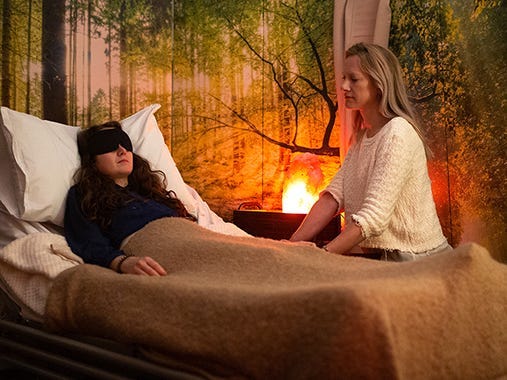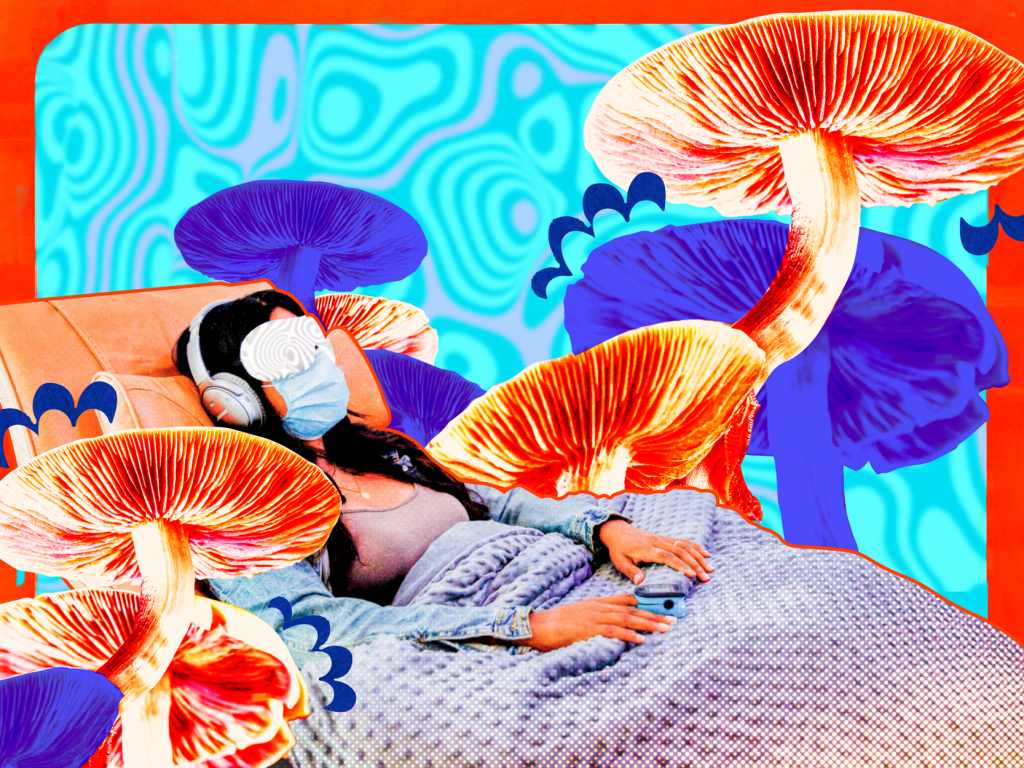- Oregon is set to be the first US state where selling and taking "magic" mushrooms is legal.
- The services will be available at a range of businesses, from retreat centers to mom and pop shops.
- Here's what you need to know if you plan on taking "magic" mushrooms in the state.
Oregon is on track to become the first state in the US where people can take "magic" mushrooms legally.
In 2020, Oregon legalized psilocybin through a ballot initiative called Measure 109. Under the new law, Oregonians and tourists aged 21 and older will be able to access legal "magic" mushrooms in the state early next year, though the timeline of when businesses will open is still being decided.
Last month, the Oregon Psilocybin Advisory Board, the regulatory body tasked with making recommendations around psilocybin services in the state, finalized their suggestions for what the program will look like.
These recommendations aren't regulations. A different body, the Oregon Health Authority, is responsible for setting up and regulating the new program, but these recommendations are a first look into what the first psilocybin program in the US could look like.
Final rules in Oregon are expected to be released in the coming months.
A facilitator with a special license will give the drug and supervise the experience
It's still unclear when psilocybin services will be available to the public. According to Angela Allbee, the manager of Oregon Psilocybin Services at the Oregon Health Authority, licenses will be available to businesses by early January and at the earliest, businesses may be able to open their doors in the first half 2023.
But what's clear is that "magic" mushrooms in Oregon won't be like buying weed in California, where you can take it home to use.
Businesses offering psilocybin in Oregon will need a special license from the Oregon Health Authority, and a trained facilitator will administer the drug and supervise your entire experience at a set location.
The experience could cost anything from $1500 to over $7000
Costs for the psilocybin experiences aren't determined by the law, but they're expected to vary based on where you choose to have your experience.
Ronan Levy, CEO at Field Trip Health & Wellness told Insider: "An easy analogy is gyms where there's a lot of mom and pop gyms that are open, but there's Equinox locations across the world and both compete in their own respective spaces," referring to the luxury gym brand.
Field Trip runs ketamine clinics across the US and plans to operate psilocybin clinics in Oregon. Levy said the company's "magic" mushroom program in Oregon would be comparable to its psilocybin truffle retreats in the Netherlands, where psilocybin truffles are legal, but "magic" mushrooms are illegal. The Field Trip psilocybin experiences in the Netherlands cost between $4160 to $7750 depending on the number of sessions.
Meanwhile, Synthesis, a Netherlands-based psychedelics retreat startup, intends to run immersive "magic" mushroom retreats at its 124-acre estate in Ashland, Oregon. Myles Katz, co-founder and director of business development at Synthesis, told Insider that prices in Oregon would also probably be similar to Synthesis' service in The Netherlands, where truffle retreats cost $6,497 for a five day experience.
Other service providers could charge less.
Rebecca Martinez, the founder of a nonprofit organization called the Alma Institute, which is focused on treating people from marginalized communities, told Insider that taking "magic" mushrooms with one facilitator, including a preparation session and one aftercare session, is expected to cost around $1,500.
"We need to ensure facilitators have a sustainable living and prevent burnout. Fair wages are a big part of this," Martinez said.

Before the session you'll have to declare any health conditions
During the preparatory session, clients will need to complete a risk assessment and sign a consent form. On this form, you'll need to declare any chronic medical conditions or allergies, so it's advised that you check with your regular doctor beforehand. People diagnosed with schizophrenia may be at increased risk of side effects, for example.
Trips can last up to 8 hours, with a facilitator monitoring you
You can take the drug in a group or individual session.
In Oregon, only one "magic" mushroom species, called Psilocybe cubensis, will be permitted. The mushroom can be combined with foods, but shouldn't be given alongside homemade foods, cannabis, alcohol or any other ingredients or additives that might alter its effects.
Generally you'll be given 20 to 30 mg of psilocybin in a session, though clients will be able to take less than that amount or opt for "subperceptual doses of psilocybin products," also known as microdosing, if they choose.
The trip usually lasts about 6 to 8 hours, depending on the dose, and your facilitator will monitor you throughout the experience.
The facilitator may offer a "supportive touch," like holding your hand, or placing a hand on your shoulder, but only if you've consented to this.
You can't drive for more than 24 hours after a trip
The facilitator decides when the experience has finished and there is no minimum or maximum duration for the session where the "magic" mushroom is given.
The consent form that you sign before your session requires you to agree not to drive or engage in any activities that "require alertness or quick responses" for up to 24 hours.
After your experience, your facilitator is required to have at least one so-called integration session with you, which aims to help you process the experience. They might also recommend that you receive ongoing care from another service provider, such as a psychologist.
